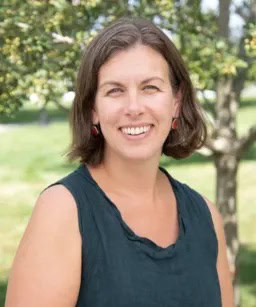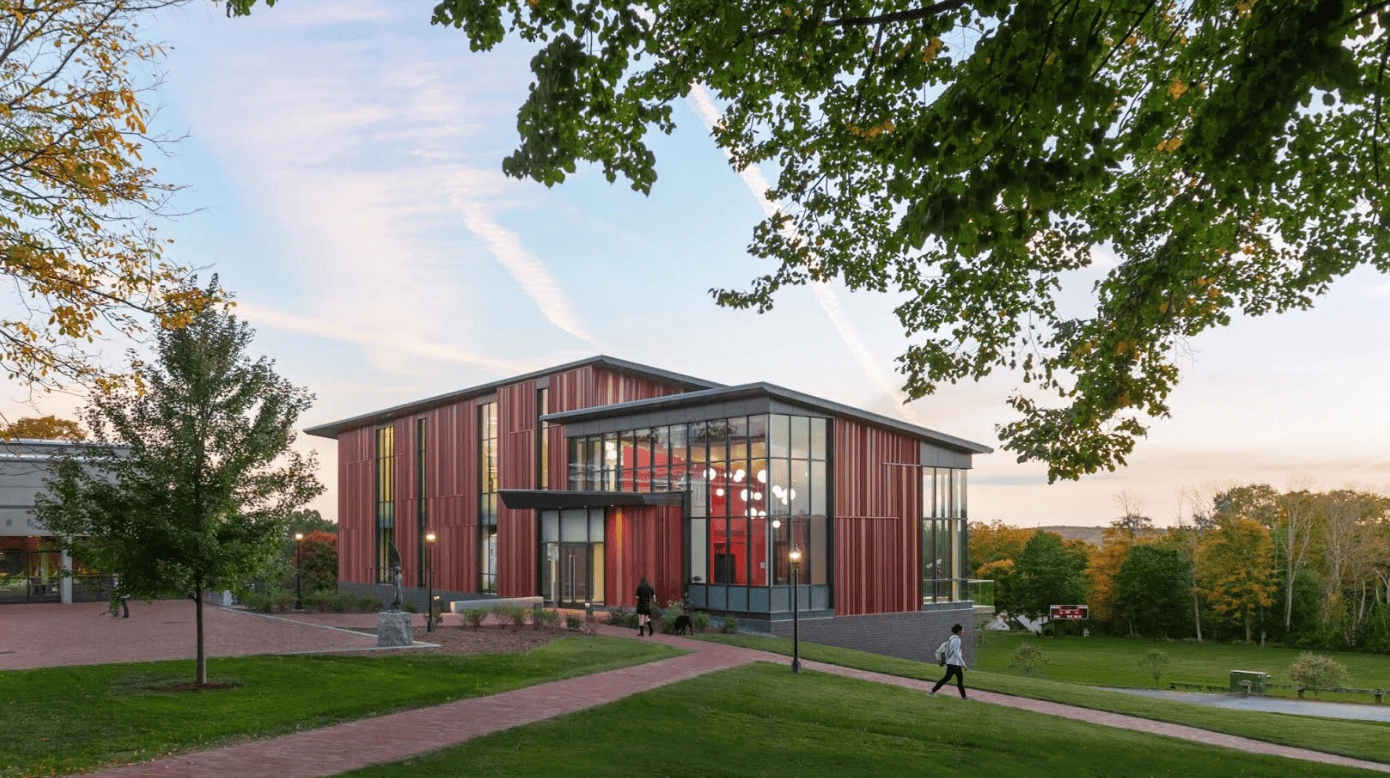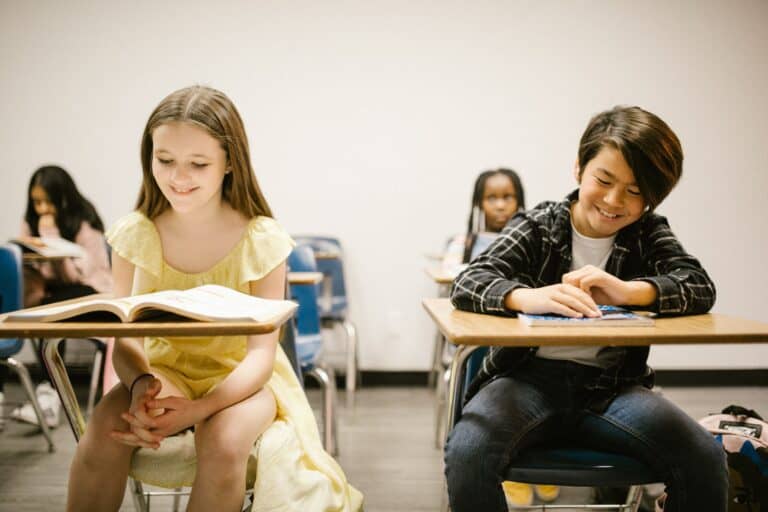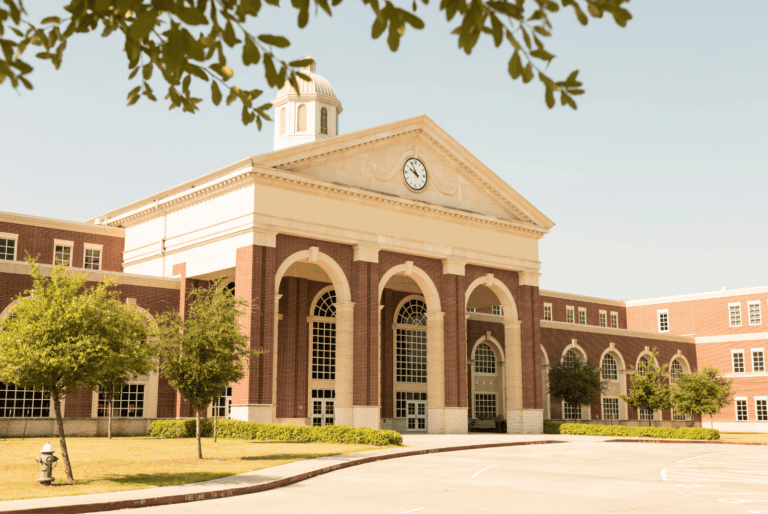“Teacher Nerd Summer Camp Vibes”: A Conversation with Gwyneth Connell
Gwyneth Connell is the Director of the Grauer Institute and a Faculty Advisory Board member at R.E.A.L.® Discussion. We interviewed Gwyneth about her journey to becoming an academic leader and her vision for the recently announced collaboration between R.E.A.L.® and Grauer: an in-person PD opportunity this summer. What follows is a conversation between Gwyneth and R.E.A.L.® Partnerships and Program Manager Catherine Dragone. This conversation has been lightly edited for clarity.
Catherine: What has been your path through schools? How did you end up where you are now?
Gwyneth: I grew up about two and a half miles from the Peddie School. That’s where I went to high school, and where I was in my yearbook voted “Most Likely to Return to Peddie as a Teacher.” All throughout college, though, I didn’t think I would become a teacher – I thought I would go to law school and do policy work. After I graduated, I was applying for legal research jobs. It wasn’t until I was offered one that I thought, “If I take this job, I won’t ever get to teach.”

So I became a teacher, and I spent the first seven years of my career at Millbrook. I took a leave to go to the private school leadership program at the Klingenstein Center at Teachers College, and that was transformative.
While I was teaching, one day my History department head told me I needed to teach philosophy. I had never taken philosophy, and my department head said, “I know the content scares you. That’s why I want you to do it.” That was the year I really learned how curriculum works – and how important it is to maintain your own learner’s mindset as an adult.
Catherine: You then transitioned into administrative roles, right? What was that transition like, as you went from primarily working with students to then working with faculty?
Gwyneth: Yes, I became the 33-year-old Dean of Faculty at Berkshire School, which felt like a dream come true. People often asked me the biggest difference between being a Dean of Students and a Dean of Faculty. And I would tell them: when a kid is on fire, you have to put it out right away. When an adult is on fire, they make an appointment.
I spent time as an academic and faculty leader at a few different boarding schools before coming here to Pomfret School as the Director of the Grauer Institute: the learning experience we create for adults at Pomfret on behalf of kids.
People often asked me the biggest difference between being a Dean of Students and a Dean of Faculty. And I would tell them: when a kid is on fire, you have to put it out right away. When an adult is on fire, they make an appointment.
Gwyneth Connell
Catherine: In your role as Director of the Grauer Institute, what education trends are you most excited about right now?
Gwyneth: The thing I’m most invested in here is the shift to competency-based learning and teaching. It’s the radical idea that we should tell students what it is we’re trying to get them to be able to do – it’s sort of bonkers that that’s even considered innovation!
Differentiation goes hand-in-hand with competency-based learning. We’re trying to figure out how to push the high-performers harder while also supporting the kids who are struggling.
To make this shift, I first need to get our whole faculty on board, and that’s hard too – because independent school teachers are very focused on teacher autonomy. I think in general, teacher autonomy tends to help teachers, not kids.
Catherine: Building upon that – what excited you about R.E.A.L. ®? Can you tell us about the partnership with Grauer?
Gwyneth: R.E.A.L.® is such a great example of the possibility to teach things we thought couldn’t be explicitly taught. That, of course, is the power of Competency-Based Learning, broadly, but R.E.A.L.® tackles an element of pedagogy that has felt especially squishy for many teachers for a long time. We have seen that impact first-hand in our 9th and 10th grade humanities courses.
I love how R.E.A.L.® makes discussion skills actionable to every kid – and calls teachers to be explicit in their expectations and specific in their feedback. It’s a living embodiment of a growth mindset – both for the kids and for the faculty.
And in many classrooms,there’s an idea that if discussion is hard for you, we should not make you do it. What?! If calculus is hard for you, we don’t say, “well, that means you can’t do it.” No – we say, “step it up and learn to do a new thing.” Oh, you prefer to express your feelings in writing? Sorry – we’re not doing that today. Maybe next week.
R.E.A.L.® is such a great example of the possibility to teach things we thought couldn’t be explicitly taught. That, of course, is the power of Competency-Based Learning, broadly, but R.E.A.L.® tackles an element of pedagogy that has felt especially squishy for many teachers for a long time…
Gwyneth Connell
I love how R.E.A.L.® makes discussion skills actionable to every kid – and calls teachers to be explicit in their expectations and specific in their feedback. It’s a living embodiment of a growth mindset – both for the kids and for the faculty.
Catherine: Absolutely! Can you tell me a bit about your vision for R.E.A.L. ® at Grauer this summer?
Gwyneth: One of the things that is so apparent to anyone who does work with R.E.A.L.® is how much you all treasure your teacher-community – which I know you often call a “nerd party!” At Grauer this summer, we’re tripling down on this teacher nerd summer camp vibe. I think that’s the thing that makes R.E.A.L.® and Grauer such a good fit for one another: R.E.A.L. ® is all about human connection and all about relationships … but it needed a host site to make an in-person opportunity actually possible!
Catherine: We’re really excited that we’ll get to be in person discussing discussion.
What do you feel makes Grauer Institute PD different from just a regular conference workshop someone might go to?
Gwyneth: I think, besides the community aspect, we’re able to help from a tactical perspective. We don’t just give the content then send you home to apply it – we make space for you to actually take the learning and turn it into something that will be useful for you.
Catherine: Thinking about R.E.A.L.® and Grauer – who do you think should come to the R.E.A.L.® part of the Institute this summer?
Gwyneth: There are three tracks of the R.E.A.L. ® at Grauer Institute, each designed for a slightly different profile.
For new-to-R.E.A.L.® teachers, Level One offers certification and pilot materials. Even if a school has no intention of implementing a full R.E.A.L ® deployment, I think any rookie humanities teachers would really benefit from R.E.A.L.® Level One. I know a teacher at Blair, where I used to work, would always say “R.E.A.L. ® should be mandatory training for any first-year humanities teacher. It helps with classroom management, organization, equity, student voice, etc.”
For Level Two, anyone who’s already doing R.E.A.L.® Discussion but wants to dive deeper into their discussion practice and engage with practitioners who teach at other independent schools across the country … and who wants to really cultivate their own leadership in R.E.A.L.® … they would be a good fit to attend.
Finally, Level Three will be a think tank of people like me who are thinking big picture. What does it mean for our school to be doing this in the broader context? It will be interesting to see how these three levels play together.
Thank you, Gwyneth, for your vision and your partnership! Interested in nerding out with us at Grauer Institute this summer? Register here.






